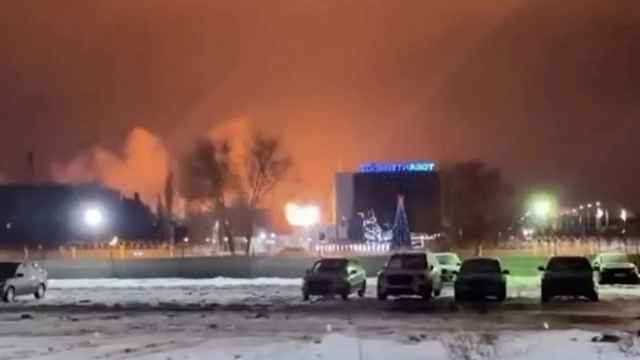PARIS — France’s highest legal authority has ruled that a law that would have made it illegal to deny the mass killing of Armenians by Ottoman Turks was unconstitutional, a move quickly welcomed by Turkey.
The decision by France’s Constitutional Council invalidates the law, which President Nicolas Sarkozy was due to ratify by the end of February, and appeared to set the stage for a thaw in diplomatic ties between Ankara and Paris.
Turkish Foreign Minister Ahmet Davutoglu said his cabinet would meet to consider whether to restart economic, political and military contacts with France, which had been frozen after the French Senate passed the law on Jan. 23.
“The correction of this grave error by the highest court in France is satisfying,” Turkey’s Foreign Ministry said.
France faces a presidential election on April 22 and May 6. Turkey had previously argued that Sarkozy’s center-right government had supported the law to secure the votes of some 500,000 Armenians living in France.
Yet minutes after the ruling, Sarkozy’s office said he had asked his government to draft a new version of the law that would take into account the Constitutional Council’s decision — raising the prospect of further acrimony.
“The president of the republic considers that [genocide] denial is intolerable and must therefore be punished,” his office said in a statement.
Turkey, which recognizes that many Armenians died in 1915, says “genocide” is an inaccurate term to describe the events because it argues that thousands were killed in massacres and counter-massacres led by both Turks and Armenians.
Armenians argue that 1.5 million of their people were killed deliberately by the Ottoman Turkish Empire. Sarkozy, who is lagging in opinion polls, would soon meet with representatives of France’s Armenian community, his office said.
The Council ruled that the law, which would have imposed a 45,000-euro ($61,000) fine, a one-year prison sentence, or both, on genocide deniers, ran against the principles of freedom of expression written into France’s founding documents.
French law already considers denial of Europe’s Holocaust illegal.
The Council said it was possible to put legal limits on freedom of expression to protect privacy and public order.
However, any such law would have to be “necessary, adapted and proportional” to the desired effect, while having the potential for creating a legal precedent.
A Message from The Moscow Times:
Dear readers,
We are facing unprecedented challenges. Russia's Prosecutor General's Office has designated The Moscow Times as an "undesirable" organization, criminalizing our work and putting our staff at risk of prosecution. This follows our earlier unjust labeling as a "foreign agent."
These actions are direct attempts to silence independent journalism in Russia. The authorities claim our work "discredits the decisions of the Russian leadership." We see things differently: we strive to provide accurate, unbiased reporting on Russia.
We, the journalists of The Moscow Times, refuse to be silenced. But to continue our work, we need your help.
Your support, no matter how small, makes a world of difference. If you can, please support us monthly starting from just $2. It's quick to set up, and every contribution makes a significant impact.
By supporting The Moscow Times, you're defending open, independent journalism in the face of repression. Thank you for standing with us.
Remind me later.





